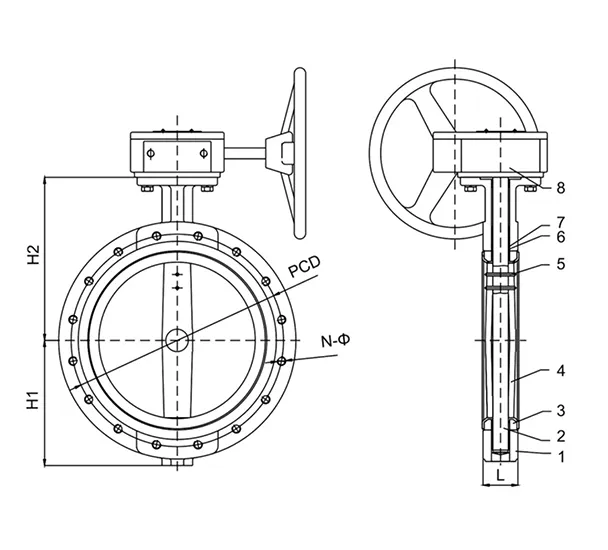Dec . 03, 2024 22:36 Back to list
Cast Steel Check Valve Advantages and Applications in Industrial Systems
Understanding Cast Steel Check Valves A Comprehensive Overview
In the realm of fluid dynamics and engineering, check valves play a critical role in ensuring the smooth and efficient operation of pipelines and various systems. Among the different materials used for constructing check valves, cast steel has emerged as a popular choice due to its durability, strength, and versatility. This article delves into the characteristics, advantages, applications, and maintenance of cast steel check valves.
What is a Cast Steel Check Valve?
A check valve is a type of valve that allows fluid to flow in one direction while preventing backflow. Cast steel check valves are specifically constructed from cast steel, which is a strong alloy composed of iron, carbon, and other materials that enhance its properties, making it suitable for high-pressure and high-temperature applications. These valves are generally designed in several configurations, including classic swing and lift designs, allowing them to perform efficiently in various industrial contexts.
Characteristics of Cast Steel Check Valves
1. Durability Cast steel is renowned for its robust mechanical properties. It can withstand substantial pressure and wear and tear from flowing media. This makes cast steel check valves ideal for heavy-duty applications.
2. Versatility Cast steel check valves can be designed to handle diverse types of fluids—liquids, gases, and slurries. They can be used in various industries, including oil and gas, chemical processing, water treatment, and power generation.
3. Temperature Resistance These valves can operate effectively in high-temperature environments, especially when they are made with special heat-resistant alloys. This feature makes them suitable for thermal applications.
4. Sealing Performance The sealing capability of cast steel check valves is essential for preventing any reverse flow. These valves usually come with high-quality seals and are designed to close quickly, which further enhances their reliability.
Advantages of Cast Steel Check Valves
1. Cost-Effective While the initial investment in cast steel check valves may be higher than other materials like PVC or plastic, their long-term durability and lower maintenance costs make them more economical in the long run.
2. High Pressure and Temperature Ratings Cast steel valves can typically withstand higher pressures and temperatures than valves made from other materials. This capability allows them to be employed in more demanding applications.
3. Customizability Manufacturers can create customized cast steel check valves tailored to specific requirements, ensuring that they fit perfectly within the desired operational parameters.
cast steel check valve

4. Corrosion Resistance When coated or treated appropriately, cast steel valves can resist corrosion, which is crucial for extended service life, especially in chemical processing industries.
Applications of Cast Steel Check Valves
These valves are commonly used across various sectors, including
- Oil and Gas Ensuring that crude oil and natural gas flow in the correct direction and preventing backflow to ensure safety and efficiency. - Water Treatment Used in systems that manage water treatment processes, preventing reverse flow that could contaminate clean water sources. - Power Generation Essential in steam turbines and water flushing systems within power plants to maintain efficient operations. - Chemical Processing Employed in pipelines transporting chemicals to prevent backflow and contamination within the systems.
Maintenance of Cast Steel Check Valves
Maintaining cast steel check valves is crucial to ensuring long-term functionality and reliability. Here are a few maintenance tips
1. Regular Inspection Periodic checks for signs of wear, corrosion, or leakage should be conducted. Early detection of issues can prevent costly repairs or replacements.
2. Cleaning Keeping the valve clean from debris and other sediments can enhance its performance. Regular cleaning helps maintain smooth operation and efficient sealing.
3. Lubrication For certain types of check valves, especially those with moving parts, appropriate lubrication is necessary to facilitate smooth operation and reduce friction.
4. Replacement Parts Always use manufacturer-recommended parts for replacement to maintain the standard quality and performance of the valve.
Conclusion
Cast steel check valves serve as a vital component in various industrial applications, thanks to their strength, durability, and versatility. Understanding their features and benefits can help engineers and operators maximize their performance and reliability in fluid handling systems. By ensuring proper maintenance and employing these valves in appropriate applications, businesses can significantly enhance the efficiency of their operations.
Share